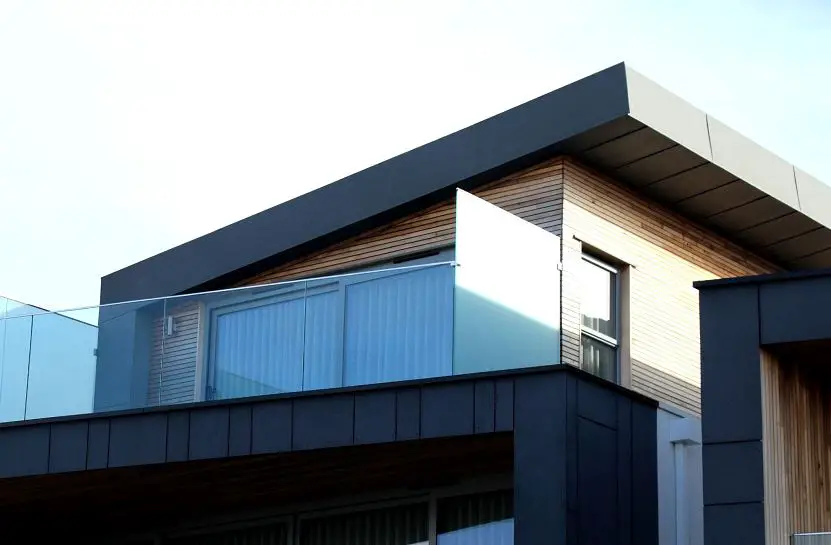Tempered Door Glass: Enhancing Safety and Style in Entryways

Tempered door glass is increasingly becoming the material of choice for modern entryways in residential and commercial buildings. This is due to its numerous benefits, which range from providing enhanced security and impact resistance to offering a wide variety of design options and aesthetics. This article will explore these benefits in detail, as well as the thermal performance and energy efficiency of tempered door glass.
Benefits of Tempered Door Glass for Residential and Commercial Applications
Tempered door glass, also known as toughened glass, is a type of safety glass that has been processed to be stronger and more resistant to breaking than standard glass. The process involves heating the glass to a high temperature and then cooling it rapidly, which puts the outer surfaces into compression and makes them stronger.
Enhanced Safety
One of the primary benefits of using tempered door glass in residential and commercial applications is its increased safety. Due to the strength and durability of the material, it is much less likely to break or shatter when subjected to impact or stress.
In the rare event that it does break, the glass shatters into small, relatively harmless pieces, reducing the risk of injury to occupants.
Greater Durability
Tempered door glass is also more durable than standard glass, making it ideal for use in high-traffic areas or locations where there is a greater risk of impact or damage.
This increased durability means that tempered glass doors can withstand the rigors of daily use and are less likely to require replacement due to breakage or damage.
Reduced Maintenance and Lower Replacement Costs
Due to their increased strength and durability, tempered glass doors require less maintenance and are less likely to need replacing than standard glass doors.
This can result in significant cost savings over time, especially for commercial properties where frequent door replacement can be expensive and disruptive to business operations.
Security Features and Impact Resistance of Tempered Door Glass
In addition to its safety and durability benefits, tempered door glass also offers enhanced security features and impact resistance. This makes it an ideal choice for both residential and commercial entryways where security is a priority.
Improved Security
Tempered door glass is much more difficult to break than standard glass, making it an effective deterrent against forced entry attempts.
This increased security can provide peace of mind for homeowners and business owners alike, knowing that their property is better protected against break-ins.
Enhanced Impact Resistance
The strength and durability of tempered door glass also make it highly resistant to impact. This means that it can withstand the force of flying debris during storms or other extreme weather events, helping to protect the occupants and interior of a building from damage.
Resistance to Thermal Stress
Tempered door glass is also more resistant to thermal stress than standard glass. This means that it is less likely to crack or shatter due to sudden temperature changes, which can be particularly important in areas with extreme temperature fluctuations or in buildings with high levels of direct sunlight.
Design Options and Aesthetics in Tempered Glass Door Panels
Tempered glass doors are not only functional and secure, but they also offer a wide range of design options and aesthetics to suit various architectural styles and personal preferences.
Customizable Design
One of the key benefits of using tempered door glass is its versatility in design. The glass can be customized to match a specific color, pattern, or texture, allowing homeowners and business owners to create a unique and visually appealing entryway that reflects their personal style or brand image.
Enhanced Natural Light
Tempered glass doors can also help to maximize natural light within a space, creating a bright and welcoming atmosphere. This can be particularly beneficial in commercial settings, where increased natural light has been linked to improved employee productivity and well-being.
Architectural Appeal
The use of tempered door glass can also contribute to the overall architectural appeal of a building, providing a sleek and modern aesthetic that is both visually striking and sophisticated. This can help to enhance the curb appeal and overall value of a property.
Thermal Performance and Energy Efficiency of Tempered Door Glass
In addition to its safety, security, and design benefits, tempered door glass also offers improved thermal performance and energy efficiency compared to standard glass doors.
Improved Insulation
Tempered door glass typically has better insulating properties than standard glass, helping to reduce heat transfer between the interior and exterior of a building.
This can result in increased energy efficiency and lower heating and cooling costs, particularly in extreme temperature environments.
Reduced Condensation
Tempered glass doors are also less prone to condensation than standard glass doors, helping to maintain a more comfortable and healthy indoor environment.
This can be particularly important in commercial settings, where excess moisture and condensation can lead to issues with mold and mildew, resulting in potential health risks and damage to the building.
Environmentally Friendly
The use of tempered door glass can also contribute to a building’s overall environmental sustainability. By improving energy efficiency and reducing the need for frequent door replacement, tempered glass doors can help to reduce the environmental impact of a property over time.
In conclusion, tempered door glass offers numerous benefits for both residential and commercial entryways, ranging from enhanced safety and security to a wide variety of design options and improved energy efficiency.
These benefits make it an attractive and practical choice for homeowners and business owners alike, helping to create entryways that are not only functional and secure but also stylish and visually appealing.
